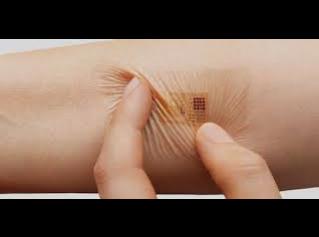A contraceptive chip that lasts 16 and is controlled by remote control has been created in the US
 Contraceptive chip
Contraceptive chipResearchers from the Technological Institute in Massachusetts in a Project backed by Bill Gates (Microsoft), have developed a chip that once inserted under a woman’s skin releases a small dose (30 micrograms) of the hormone levonorgestrel, a principal part of some contraceptive methods, every day for 16 years. The release of this hormone into the woman’s body can be stopped at any time by remote control.
The device that measures 20mmx20mmx7mm, contains a 1.5cm microchip with tiny stored reserves of the hormone. It is believed that it could be on sale by 2018.
Its creators promise numerous advantages with respect to the classic methods. To start with, the durability is nearly two decades, which corresponds to half of the fertile life of a woman. Also, in contrast to other contraceptive implants, it is not necessary to go to the doctor to remove it and stop the treatment. The woman herself can switch the device off with the remote control when she wants to have a child and can switch it back on again when she wants to prevent a pregnancy. This offers them more Independence in their family planning.
One of the challenges that the team of scientists face now is the security o and the communication with the chip, to make sure that it cannot be activated or deactivated by remote control by another person without the knowledge of the woman carrying it. For this, according to Robert Farra, “the communication with the implant should occur at a distance no further tan direct skin contact, someone on the other side of the room cannot reprogram the device” and added “… we have a secure code which stops anyone from trying to interpret or intervene in the communication.”
The implant technology faces many challenges and risks but also has its benefits that can be huge. According to the biomedical engineer Gavin Corely, this technology could be used in areas when access to traditional contraceptives is very limited. “ It would be a humanitarian matter rather tan satisfying the needs of the first world.”
We still have to wait to be able to use the device. Its creators calculate that this could be in 2018 and will be sold at a “competitive Price”. First, it will be tested in the United States in 2015 and must pass strict FDA controls (American Food and pharmaceutical Administration). If it passes all of the trails it will be big news, above all for developing countries. With this contraceptive chip, women will always be able to control birth rate and not in a short term or momentary way like now. And on top of all that it is a reversible method!
- Conditions of participation
- > This is the opinion of the users of abortionclinicsinuk.co.uk
- > Insults of rude comments are not permitted
- > It is not permitted to make comments breaking British law
- > abortionclinicsinuk.co.uk reserves the right to delete offensive or unrelated comments
Most popular FAQs
Questions by recent users
- Please can you contact me to discuss adding our services to your site - see www.nupas.co.uk. We are contracted by 60 CCGs to provide TOPs across the UK, Many thanks
- The fourth time in about 6 months that i'll be using the after morning pill... is it safe?
- Hi I got all the symptoms for pregnancy but the pregnancy test shows negatives
- Is there anyway I can find out about a previous abortion I have had?
- Appointment on bank holiday




